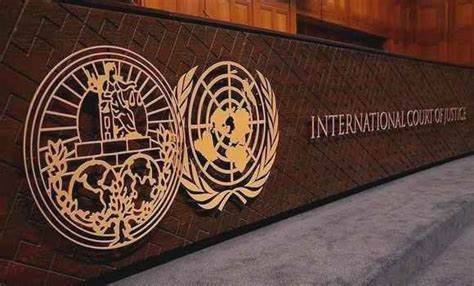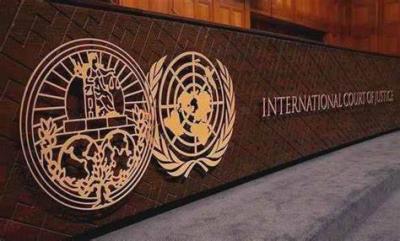The President of the International Court of Justice, Naufal Salam, announced that "Israel is violating its duty to administer the occupied territories and its policy of exploiting natural resources contradicts its international obligations." He emphasized that "Israel must put an end to the occupation and terminate its illegal presence in the Palestinian territories," calling on "all countries not to recognize Israel's illegal presence in the occupied territories." He clarified that "it is Israel's responsibility to immediately cease settlement activities and evacuate existing settlements."
Salam stated, "Based on the evidence we have, Israel has expanded its jurisdiction in the West Bank instead of local law," adding that "the court is not convinced that the expansion of Israeli law in the West Bank and Jerusalem is justified." He noted that "Israel has imposed its authority as an occupying power in a manner that contradicts Articles 53 and 64 of the Geneva Convention," pointing out that "the International Court of Justice considers the forced displacement of residents from the occupied territories as contrary to Israel's obligations."
He continued, "Israel has abandoned its commitments under the 1965 International Convention on the Elimination of All Forms of Racial Discrimination," stressing that "Israel must adhere to the Sedra Agreement when exercising its authorities beyond its borders." Salam said, "Israel has retained its authority over the Gaza Strip, particularly monitoring its air, maritime, and land borders," indicating that "the displacement of residents from the occupied territories was forced, which contradicts Israel's obligations."
He explained that "Israel has failed to fulfill its duty to protect Palestinians from settler violence in the West Bank," considering that "Israeli practices in East Jerusalem have created a situation where Palestinians cannot live under." He affirmed that "the occupied Palestinian territories represent areas of unity, continuity, and sovereignty that must be respected," and clarified that "the Palestinian people, recognized under the Oslo Accords, have the right to self-determination."
The court is currently examining the legal implications of political practices and their reflection on the occupied territories at its headquarters in The Hague. Salam pointed out that "the current advisory opinion does not include the war that erupted in Gaza in October 2023, and it is based on the premise that the Palestinian territories are under occupation." The court has been considering this issue since the beginning of last year, at the request of the United Nations General Assembly.
The UN has requested the court to provide its opinion on Israel's policies and practices toward Palestinians, and the legal status of Israel. This could be the first time the International Court of Justice issues a "position on whether the ongoing occupation, which has lasted for 57 years, is illegal." The court will issue an advisory opinion, which is not legally binding but will carry significant political weight.




